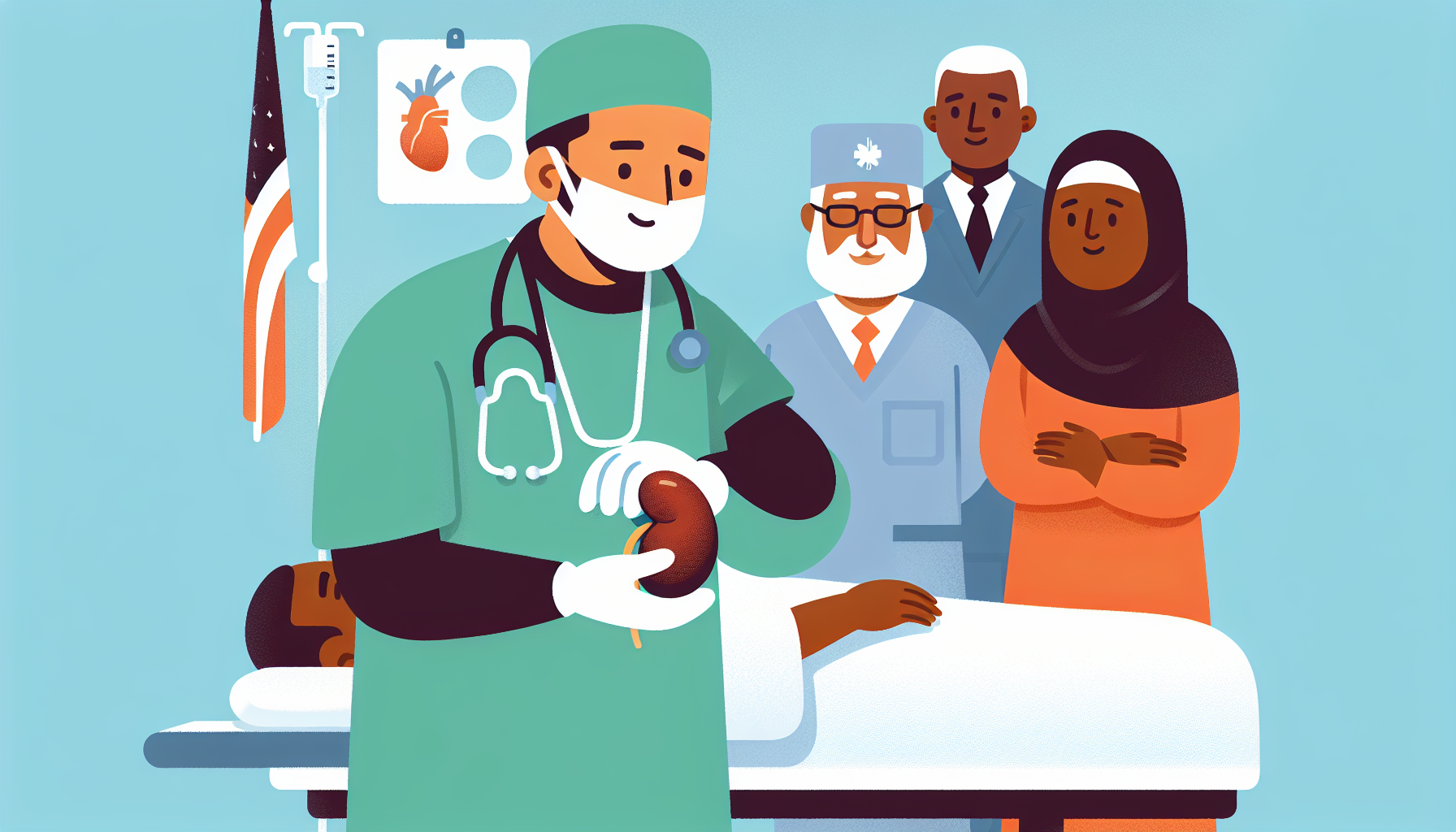Definition
In the context of VA benefits, a kidney transplant refers to the surgical procedure where a healthy kidney from a living or deceased donor is implanted into a patient with end-stage kidney disease or renal failure. This procedure can significantly improve the patient’s quality of life and may even be life-saving. The U.S. Department of Veterans Affairs may provide healthcare benefits, including coverage for kidney transplant, to eligible veterans.
Key Takeaways
- VA kidney transplant benefits provide veterans with comprehensive care, including evaluation, surgery, and follow-up care related to kidney transplantation under the VA healthcare system.
- Veterans eligible for these benefits must be enrolled in the VA healthcare system, meet specific criteria such as having end-stage renal disease (ESRD), and receive care at a VA transplant center or pre-approved non-VA facility.
- Additional assistance, like travel reimbursement for pre- and post-transplant appointments, or temporary lodging during treatment, may be available for eligible veterans to help alleviate costs and logistical challenges.
Importance
The VA benefits term “Kidney Transplant” is important because it is a critical procedure required by veterans experiencing end-stage renal disease or severe kidney failure.
The Veterans Affairs (VA) provides support and covers the costs associated with the surgery in addition to post-operative care, such as immunosuppressive medications, follow-up appointments, and potential complications related to the transplant.
This benefit is crucial for eligible veterans, as kidney transplantation can significantly improve their quality of life, increase life expectancy, and minimize the need for ongoing dialysis treatments.
By including kidney transplant as part of the broader VA benefits package, it demonstrates the commitment of the VA to provide comprehensive healthcare services and support to veterans in need.
Explanation
The VA benefits term, Kidney Transplant, refers to a life-changing medical procedure aimed at providing eligible veterans with an improved quality of life and an opportunity for a healthier future. As a crucial healthcare offering within the Veterans Affairs (VA) health system, a kidney transplant is a comprehensive solution for veterans with end-stage renal disease or chronic kidney failure.
This procedure is focused on replacing a non-functional or diseased kidney with a healthy kidney from a living or deceased donor, allowing the patient to resume normal kidney function and rid their body of harmful toxins, waste, and excess fluids. Through a VA healthcare facility or a community care provider, veterans benefit from this essential transplant surgery to alleviate their suffering and restore their overall wellbeing.
A kidney transplant within the VA health system encompasses not only the actual surgical procedure but also incorporates pre-transplant care, support during the recovery process, and continuous follow-up care to ensure that the transplanted organ’s proper functioning is preserved. This comprehensive approach to care is vital to the purpose of kidney transplants, helping recipients enjoy a more active, healthier life without the need for ongoing dialysis treatments.
Moreover, the VA healthcare providers aim to balance eligibility and availability with the ethically responsible allocation of donor kidneys and optimal transplant outcomes. Veterans who are determined eligible for a kidney transplant must meet specific medical and psychosocial criteria to ensure the highest chances of success and are supported throughout their journey to achieving improved health post-transplant.
Examples of Kidney Transplant
Example 1: A U.S. military veteran, John, is suffering from end-stage kidney disease as a result of diabetes, which was aggravated by his service in the military. Upon being informed about the necessity of a kidney transplant, John contacts the Veterans Affairs (VA) office to understand what sort of coverage and benefits he is eligible for. Under the VA Benefits program, John’s kidney transplant surgery costs and post-surgery care expenses are substantially covered.
Example 2: Susan, a retired Air Force nurse, was diagnosed with kidney failure. Fortunately, her sister was a compatible donor and willing to donate one of her kidneys for Susan’s transplant. Susan was relieved upon discovering that VA Benefits would cover not only her transplant-related expenses, but also her donor’s evaluation, surgery, and follow-up care costs.
Example 3: After retiring from the Army, Michael suffered chronic kidney disease, eventually leading to kidney failure. While considering the possibility of a kidney transplant, he enrolls in the VA healthcare program. Through the program, he receives pre-transplant care and guidance, including dialysis and help locating a suitable donor. Eventually, he is placed on the national waiting list for a deceased donor kidney. Once a match is found, Michael’s kidney transplant surgery takes place at a VA transplant center, and all costs associated with the transplant procedure are covered through his VA Benefits.
Kidney Transplant VA Benefits FAQ
What VA benefits are available for kidney transplant recipients?
VA offers a range of benefits to eligible veterans who have undergone a kidney transplant. These benefits may include healthcare, medications, disability compensation, and vocational rehabilitation, among others.
How do I know if I am eligible for VA benefits related to my kidney transplant?
To be eligible for VA benefits related to kidney transplant, you must be a veteran who is enrolled in the VA healthcare system and meet specific service-related requirements. The specific eligibility criteria may vary depending on the benefit program you are applying to.
What is the process to apply for VA benefits related to kidney transplant?
To apply for VA benefits related to kidney transplant, you can start by visiting the VA website and creating an account on the VA.gov portal. Once you have an account, you can log in and access the specific benefit application form. Follow the instructions, fill out the necessary information, and submit the application online. Alternatively, you can also apply in person at a VA medical facility or by calling 1-877-222-VETS (8387).
Can I receive disability compensation for my kidney transplant?
Yes, veterans with a service-connected kidney condition that results in a kidney transplant may be eligible for disability compensation. The VA will determine your eligibility based on medical evidence and other documentation related to your service-connected disability and kidney transplant.
How does the VA determine the disability rating for a kidney transplant?
The VA uses the VA Schedule for Rating Disabilities to assign disability ratings for kidney transplants. In general, a veteran who has undergone a kidney transplant due to a service-connected condition can receive 100% disability rating for at least one year following the transplant. After one year, the rating may be reduced if the veteran shows improvement in kidney function.
Does the VA provide assistance with vocational rehabilitation for kidney transplant recipients?
Yes, veterans who have undergone a kidney transplant and are facing employment challenges due to their service-connected disability may be eligible for the VA’s Vocational Rehabilitation and Employment (VR&E) program. This program offers services like job training, employment accommodations, resume development, and job-seeking support to help veterans with disabilities find and maintain suitable employment.
Related VA Benefit Terms
- Renal Transplant Surgery
- Immunosuppressive Medications
- Living Donor Kidney
- Post-Transplant Care
- Transplant Waiting List
Sources for More Information
- U.S. Department of Veterans Affairs
- National Kidney Foundation
- American Kidney Fund
- Organ Procurement and Transplantation Network (OPTN)
 Benefits.com Advisors
Benefits.com Advisors
With expertise spanning local, state, and federal benefit programs, our team is dedicated to guiding individuals towards the perfect program tailored to their unique circumstances.
Rise to the top with Peak Benefits!
Join our Peak Benefits Newsletter for the latest news, resources, and offers on all things government benefits.


















